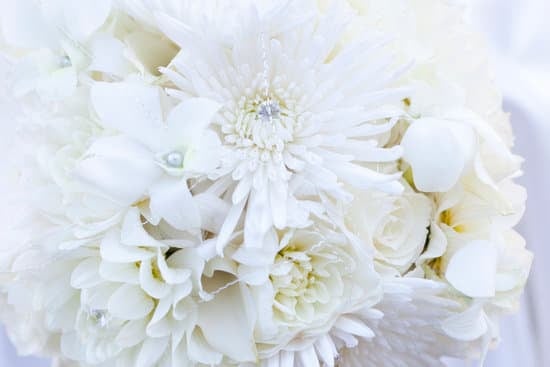Who plans a wedding? The process of organizing and preparing for a wedding involves a multitude of individuals with varying roles and responsibilities.
From the bride and groom to family members, friends, and even professional wedding planners, each plays a crucial part in ensuring that the big day goes off without a hitch. This article will explore the significance of wedding planning and the key roles involved, shedding light on traditional, modern, cultural, and DIY approaches to orchestrating the perfect wedding.
Wedding planning is no small feat-it requires careful coordination, attention to detail, and effective communication among all parties involved. Traditionally, certain responsibilities have fallen on the shoulders of the bride, while other tasks are handled by the groom. However, as times have changed, so too have the dynamics of wedding planning. In more recent years, there has been a shift toward more collaborative efforts between both parties when it comes to organizing their special day.
In addition to the bride and groom’s involvement in wedding planning, many couples also opt to enlist the help of professional wedding planners to navigate through this complex process. Family members and friends also play a significant role in contributing to the overall success of the event. As we delve deeper into this discussion, we will explore various perspectives on who plans a wedding and how different factors such as culture, religion, and modern trends influence these roles.
The Role of the Bride
When it comes to wedding planning, the bride has traditionally taken on a significant amount of responsibility. From choosing the color scheme and flowers to coordinating with vendors and creating the guest list, the bride has been seen as the primary planner for the big day. In addition to these tasks, the bride is also expected to pick out her dress and those of her bridesmaids, as well as organize bridal showers and other pre-wedding events.
In modern times, however, these traditional responsibilities have evolved. Many couples are now opting for a more collaborative approach to wedding planning, with both partners sharing in the decision-making and tasks involved. This shift reflects a move towards equality in relationships and a desire for shared experiences in all aspects of life, including wedding planning. With this change, it is becoming increasingly common for grooms to take a more active role in all aspects of the wedding preparation.
In some cases, couples may choose to hire a professional wedding planner who can help alleviate some of the stress associated with wedding planning. This allows both partners to be involved in decision-making while still having an experienced individual to guide them through the process.
| Traditional Responsibilities | Modern Approach |
|---|---|
| Choosing color scheme, flowers | Couples share decision-making |
| Picking out dresses | Grooms taking an active role |
| Organizing pre-wedding events | Hiring professional wedding planner |
The Role of the Groom
Traditional Roles vs Modern Involvement
Traditionally, the groom’s role in wedding planning was limited to showing up on the big day and making some key decisions, such as choosing his tuxedo and selecting his groomsmen. However, in modern times, the groom’s involvement in wedding planning has evolved significantly.
Grooms are taking a more active role in the decision-making process, from selecting the venue to creating the guest list. Many grooms are also embracing tasks such as organizing transportation and accommodations for out-of-town guests, as well as managing the budget.
Supporting the Bride
In addition to taking on more responsibilities, grooms are also playing a pivotal role in supporting their brides throughout the wedding planning process. This involves providing emotional support, listening to their partner’s ideas and concerns, and actively participating in discussions about various aspects of the wedding.
The modern groom understands that this is not just his bride’s special day but also a significant milestone in his life, and thus is dedicated to being an equal partner in creating a memorable celebration.
Creating Lasting Memories
Ultimately, the modern groom who plans a wedding sees it as an opportunity to create lasting memories that will be cherished by both partners for years to come. By actively engaging in all aspects of wedding planning, grooms are able to contribute their personal touch to the event and ensure that it reflects their love story as a couple.
From designing unique elements of the décor to involving their interests in music selection or food choices, grooms are now an integral part of curating an unforgettable wedding experience.
Wedding Planner
A wedding planner plays a crucial role in the wedding planning process, serving as a professional who can help alleviate the stress and pressure of organizing such a significant event. The decision to hire a wedding planner is often influenced by various factors, including budget, time constraints, and the complexity of the wedding details. Couples who are unsure about whether to hire a professional should consider the benefits and drawbacks of working with a wedding planner.
Pros of Hiring a Wedding Planner
One of the main advantages of hiring a wedding planner is their expertise and experience in handling various aspects of wedding planning. From creating timelines and schedules to coordinating with vendors and managing logistics, a wedding planner can provide invaluable support throughout the process.
They also have established relationships with vendors, which can result in cost savings for the couple. Additionally, hiring a wedding planner allows couples to focus on enjoying their engagement and spending quality time together without getting overwhelmed by the countless details involved in planning a wedding.
Another benefit of working with a wedding planner is their ability to bring creative ideas to the table and execute them according to the couple’s vision. Whether it’s choosing a theme, selecting décor elements, or finding unique entertainment options, a skilled wedding planner can offer valuable insight and recommendations based on their industry knowledge.
Cons of Hiring a Wedding Planner
While there are clear advantages to hiring a professional wedding planner, there are also potential drawbacks that couples should consider. One concern is the added expense that comes with hiring someone to manage the planning process. Wedding planners typically charge for their services, so couples should evaluate whether it fits within their overall budget.
Another downside is relinquishing some control over certain aspects of the wedding planning process. For individuals who prefer to be hands-on and make all decisions themselves, working with a wedding planner may lead to feelings of detachment from certain aspects of their special day. It’s important for couples to communicate openly with their chosen planner and establish clear expectations about their level of involvement in decision-making.
Ultimately, whether or not to hire a professional wedding planner depends on each couple’s unique needs and preferences. By weighing these pros and cons carefully, couples can make an informed decision about how they want to approach their journey down the aisle.
Family and Friends
Here are some ways in which family and friends contribute to wedding planning:
- Emotional support: Loved ones provide emotional support and encouragement throughout the planning process, helping to alleviate stress and anxiety that often comes with organizing a wedding.
- Financial contributions: Family members may offer financial assistance to help cover the costs of the wedding, whether it’s contributing towards the venue, catering, or flowers. Friends may also offer to pitch in for certain expenses.
- Planning assistance: Relatives and close friends can assist with various aspects of wedding planning, such as scouting for venues, assisting with DIY decorations, or organizing pre-wedding events like showers or engagement parties.
It is important for couples to communicate openly with their family and friends about their expectations and needs regarding wedding planning. While their involvement can be incredibly helpful, it’s crucial to establish clear boundaries and communicate any preferences or limitations. Ultimately, having a strong network of loved ones who are willing to lend a helping hand can make the process more enjoyable for everyone involved.
DIY Wedding Planning
Planning a wedding can be a daunting task, but it can also be incredibly rewarding, especially for couples who choose to plan their own wedding. A DIY wedding allows the couple to put their personal touch on every aspect of the celebration, from the venue to the decorations to the menu. This section will provide some essential tips and tricks for couples who are embarking on the journey of planning their own wedding.
First and foremost, when embarking on a DIY wedding planning journey, it’s essential to stay organized. Many online resources offer free wedding planning tools such as checklists and budget calculators that can help couples keep track of all their tasks and expenses. Setting a realistic budget is crucial, as it will guide all other decisions throughout the planning process.
Furthermore, communication is key when it comes to DIY wedding planning. Couples should ensure they are on the same page about their vision for the big day. Regular check-ins and updates will help avoid any miscommunications or misunderstandings along the way. Additionally, both partners should feel comfortable sharing responsibilities in the planning process – after all, it’s a celebration of both individuals coming together.
Finally, don’t be afraid to seek help from family and friends who can contribute creatively or offer support in various ways throughout the planning process. Many successful DIY weddings have been made possible thanks to the collective efforts of loved ones who pitched in with everything from crafting decorations to organizing logistics on the day of the event.
| DIY Wedding Planning Tip | Description |
|---|---|
| Stay Organized | Use free online resources like checklists and budget calculators |
| Effective Communication | Regular check-ins with your partner are important |
| Seek Support | Enlist help from family and friends for various aspects of planning |
Cultural and Religious Influence
In many cultures and religions, weddings are significant events that are steeped in tradition and ceremony. The influence of cultural and religious traditions on wedding planning can be profound, as they often dictate specific customs, rituals, and responsibilities for various members of the wedding party. Here are some ways in which cultural and religious influences impact wedding planning:
- Customs and Rituals: Different cultures and religions have unique customs and rituals that are integrated into the wedding ceremony. For example, in Hindu weddings, there is a traditional ritual called “Mangal Phera” where the bride and groom walk around a sacred fire seven times to solemnize their marriage.
- Role of Family Members: In many cultures, family members play a significant role in the wedding planning process. For instance, in Chinese culture, it is customary for the parents of the bride to host the wedding reception and take on most of the financial burden.
- Traditional Attire: Cultural and religious influences often dictate the attire worn by the bride, groom, and other members of the wedding party. For example, in a traditional Jewish wedding, it is customary for the groom to wear a “kippah” or head covering during the ceremony.
It is important to note that while cultural and religious traditions provide a framework for wedding planning, modern couples often incorporate their own personal preferences into their ceremonies. This may involve blending different cultural or religious elements to create a unique and meaningful celebration.
Ultimately, when it comes to cultural and religious influence on wedding planning, it is those who plan a wedding must navigate these traditions with respect while also infusing their own personalities into their special day. Whether they choose to strictly adhere to traditional practices or put their own spin on things, honoring cultural and religious influences is an important aspect of creating a memorable and meaningful wedding celebration.
Modern Trends
In recent years, there has been a shift in the dynamics of wedding planning. While traditionally, the bride and her family were primarily responsible for making decisions regarding the wedding, modern couples are taking a more collaborative approach. Today, both the bride and groom are actively involved in the planning process, sharing responsibilities and decision-making.
With changing societal norms, it has become more common for couples to make joint decisions when it comes to their wedding. This includes choosing the venue, creating the guest list, selecting vendors, and even deciding on the overall theme and style of the event. In many cases, grooms are taking on a more active role in wedding planning than ever before, recognizing that this special day is just as much about them as it is about their partner.
Additionally, there has been an increase in couples seeking professional wedding planners to assist with their big day. With busy work schedules and other commitments, many couples find it beneficial to hire a wedding planner who can help alleviate some of the stress that comes with organizing a wedding.
These professionals can offer valuable expertise and guidance throughout the planning process and often play a key role in finalizing decisions. Ultimately, modern trends indicate that there is no longer one individual or entity who has the final say in wedding planning decisions; instead, it is a collaborative effort between both partners with support from professionals if needed.
Conclusion
In conclusion, planning a wedding involves various contributors who play significant roles in making the big day a success. Traditionally, the bride has been responsible for many aspects of wedding planning, from choosing the venue to selecting the flowers and the dress.
However, modern trends reflect a more balanced involvement of both the bride and groom in decision-making and execution of plans. This shift in dynamics demonstrates an evolving nature of wedding roles that reflects the changing societal norms and values.
Moreover, hiring a professional wedding planner offers numerous benefits, including reducing stress for the couple and ensuring that every detail is taken care of. While some may argue that it takes away from the personal touch, a wedding planner can also bring valuable expertise and guidance to create a unique and memorable event.
Additionally, family and friends contribute significantly to the planning process, whether it be through financial support or by taking on specific responsibilities such as organizing pre-wedding events or assisting with DIY projects.
Cultural and religious influences also play a vital role in wedding planning. Different traditions dictate specific responsibilities for certain family members or community leaders, adding depth and significance to various elements of the ceremony.
Ultimately, as weddings continue to evolve with modern trends shaping new traditions, it is essential for couples to communicate openly about their preferences and find a balance that reflects their unique relationship and values. Regardless of who plans a wedding, collaboration from all involved parties is key in creating an unforgettable celebration of love.
Frequently Asked Questions
Who Is Suppose to Plan the Wedding?
The responsibility of planning a wedding typically falls on the engaged couple, and sometimes their families as well. It is a collaborative effort between the couple and any other key decision makers, such as parents or close relatives.
Who Prepares the Wedding?
The preparation for a wedding involves many different tasks, from choosing a venue and setting a date to arranging for catering, flowers, music, and photography. The couple often enlists the help of vendors, such as wedding planners, caterers, and florists to assist with these preparations.
What Do You Call Someone Who Plans Weddings?
Someone who plans weddings is commonly referred to as a “wedding planner” or “bridal consultant.” These professionals are experienced in coordinating all aspects of a wedding, from the initial planning stages to its execution on the big day. Their expertise helps couples alleviate stress and navigate the complexities of organizing a wedding.

I have been involved in marriages for over 20 years helping couples and singles understand more about them.





